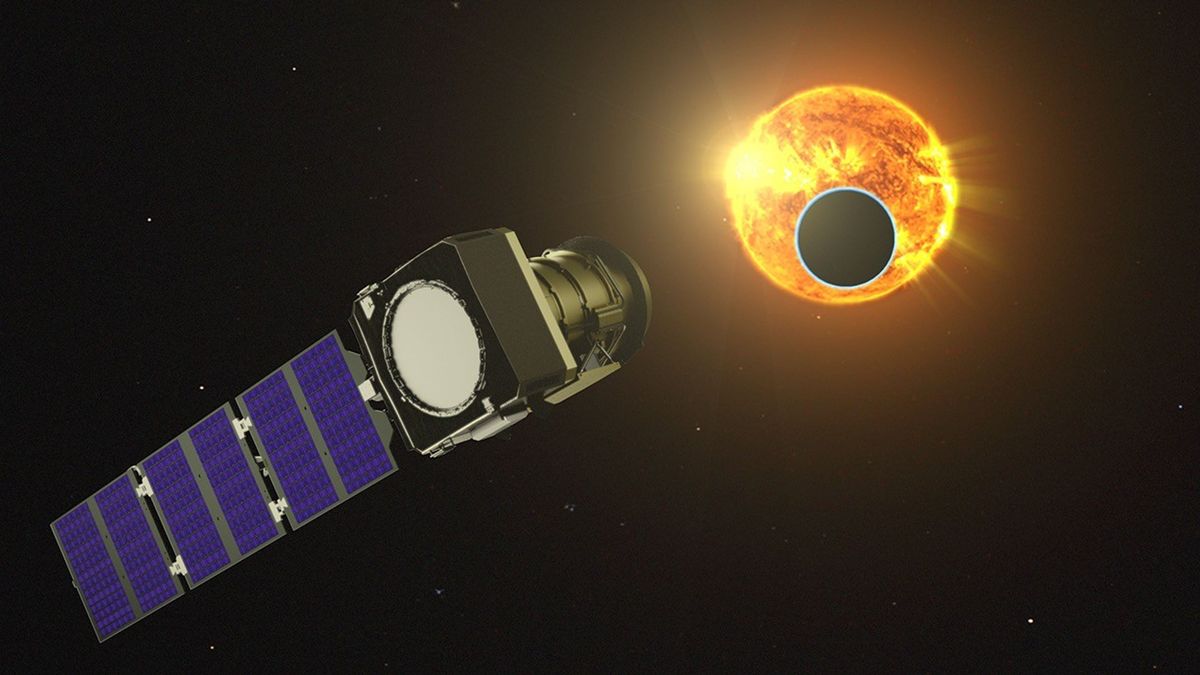
A small NASA probe dedicated to exoplanet research has secured a launch opportunity to reach Earth’s orbit.
On Monday afternoon (February 10), the agency announced its selection of SpaceX to launch Pandora, a satellite weighing 716 pounds (325 kilograms) that aims to enhance our understanding of how exoplanet atmospheres are influenced by variations in their host stars.
Pandora is scheduled to launch aboard a Falcon 9 rocket no earlier than this fall, as confirmed by NASA officials.
Upon entering low Earth orbit, the satellite will conduct observations of at least 20 known transiting exoplanets—planets that pass in front of their stars from the satellite’s viewpoint. It plans to observe these celestial bodies on 10 separate occasions, dedicating 24 hours to each observation.
Related: Unusual alien planet features a layered atmosphere of vaporized metals
“This satellite will utilize a cutting-edge 17-inch (45-centimeter) all-aluminum telescope to simultaneously measure the brightness of the host star in both visible and near-infrared wavelengths, while also obtaining near-infrared spectra of the transiting planet,” stated NASA officials in their announcement on Monday.
“These capabilities will help scientists to distinctly separate the signals from the star and the planet, significantly improving observational data from NASA’s James Webb Space Telescope and future missions targeting habitable worlds, such as the Habitable Worlds Observatory,” they added.
The choice of SpaceX for this mission was made through NASA’s Venture-Class Acquisition of Dedicated and Rideshare (VADR) launch services contract.
This contract enables the agency to offer fixed-price allocations within a five-year ordering period for VADR, with a total maximum value of $300 million across all contracts, as detailed by NASA officials.
Pandora will be the second NASA exoplanet mission launched by SpaceX; the agency’s Transiting Exoplanet Survey Satellite (TESS) successfully took off aboard a Falcon 9 rocket back in April 2018.









